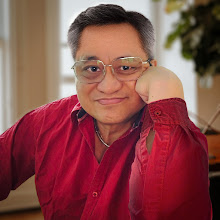THIS MONTH, Bahá'ís around the world commemorate two Holy Days associated with ‘Abdu'l-Bahá: The Day of the Covenant (26 November) and The Day of His Ascension (28 November). On these two occasions, we remember and celebrate the presence of the oldest son of the Founder of the Bahá'í Faith among us. In their 26 November 2018 message to the global Bahá’ís, the Universal House of Justice wrote:
In this season . . . every Bahá’í heart is stirred by remembrance of Him Who is the Mystery of God, the Centre of Bahá’u’lláh’s impregnable Covenant, the Mainspring of the Oneness of Humanity, the embodiment of every Bahá’í ideal, the Most Mighty Branch of God whereunder all can find shelter.
'Abdu’l-Bahá, occupies a unique position in religious history. His father, Bahá'u'lláh, conferred upon Him three distinctions that had never before been conferred upon anyone by God's appointed Messenger:
- 'Abdu’l-Bahá was Bahá'u'lláh's appointed successor
- He was the authorized interpreter of His Father's Writings.
- He was the perfect exemplar of His Father's teachings.
Such is 'Abdu’l-Bahá’s distinction that, although not a Prophet in His own right, His Writings form an important part of the Bahá'í Holy Writings. Such is the reverence in which He is held that Bahá'ís refer to Him as "the Master." He held Himself to be His Father's servant
That, indeed, is what 'Abdu’l-Bahá" means: "the Servant of Glory." He wrote:
My name is ‘Abdu’l-Bahá. My qualification is ‘Abdu’l-Bahá. My reality is ‘Abdu’l-Bahá. My praise is ‘Abdu’l-Bahá. . . No name, no title, no mention, no commendation have I, nor will ever have, except 'Abdu’l-Bahá. This is my longing. This is my greatest yearning. This is my eternal life. This is my everlasting glory.

